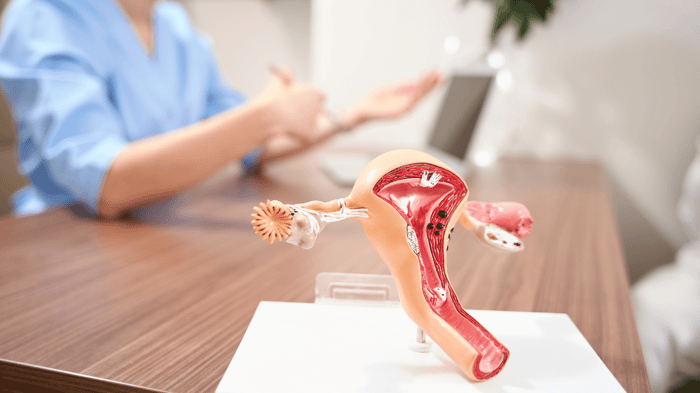Table of Contents
- What Exactly Are Hormone-Free Supplements?
- How Hormone-Free Supplements Differ from Hormone Therapy
- Why People Choose Hormone-Free Supplements
- Key Benefits of Hormone-Free Supplements
- Managing Menopausal and Perimenopausal Symptoms
- Popular Ingredients in Hormone-Free Supplements
- Enhancing Hormone Health Naturally
- Comparing Hormone-Free Supplements and Hormone Therapy
- Conclusion: A Natural Path to Balance
- FAQs
Hormone-free supplements offer a way to support the body’s natural balance without introducing synthetic hormones. Unlike hormone therapy, which seeks to replace or increase hormone levels directly, these supplements work with the body’s existing systems to restore comfort, resilience, and vitality.
This distinction is key. For many people—particularly women experiencing perimenopause, menopause, or other hormonal shifts—the prospect of using external hormones raises concerns about safety, side effects, or long-term risks. Hormone-free supplements provide an alternative path: they encourage the body’s natural rhythms, offering support that feels gentler, safer, and often more sustainable.
Over the past two decades, interest in natural health has expanded rapidly. Consumers are no longer satisfied with quick fixes or one-size-fits-all therapies. Instead, they seek approaches that honor the body’s complexity. Hormone-free supplements fit this demand by combining nutrients, plant extracts, and adaptogens that improve resilience without forcing hormonal changes.
What Exactly Are Hormone-Free Supplements?
Hormone-free supplements are products designed to improve well-being without adding hormones such as estrogen, progesterone, or testosterone. Instead of artificially boosting hormone levels, they aim to strengthen the body’s underlying systems.
A typical hormone-free supplement might contain vitamins like B-complex to support energy production, magnesium to calm the nervous system, and herbal adaptogens like ashwagandha to help the body cope with stress. These compounds provide a foundation for balance, which in turn influences hormone-related symptoms.
The principle behind them is straightforward but powerful: when the body is nourished and stress is managed, the endocrine system regulates itself more effectively. This is very different from hormone therapy, which takes control of the system externally.
How Hormone-Free Supplements Differ from Hormone Therapy
Hormone-based products—including Hormone Replacement Therapy (HRT)—introduce estrogen, progesterone, or testosterone into the body. These therapies can be effective, especially for severe symptoms of menopause, but they also carry risks such as blood clots, breast cancer, or cardiovascular problems.
By contrast, hormone-free supplements do not alter hormone levels directly. Instead, they supply nutrients and plant compounds that:
Improve energy metabolism.
Reduce inflammation.
Support the body’s natural hormone regulation.
Ease symptoms such as hot flashes, fatigue, or vaginal dryness without disrupting internal balance.
This makes them appealing to individuals who cannot, or do not want to, take hormone therapy—for example, women with hormone-sensitive cancers, or those concerned about long-term safety.
Why People Choose Hormone-Free Supplements
People often turn to hormone-free supplements during transitional life stages—such as perimenopause, menopause, or after pregnancy—when hormone fluctuations are more pronounced. For others, the draw lies in their gentleness and accessibility.
Imagine a woman in her late 40s struggling with night sweats and fatigue. Instead of immediately resorting to HRT, she may prefer trying black cohosh or red clover, both of which have shown promise in reducing hot flashes. Another example: a younger woman managing stress-related fatigue might use rhodiola or ashwagandha to restore resilience without fear of altering her reproductive hormones.
These choices reflect a broader trend: a desire for natural, long-term wellness strategies that can be personalized to individual needs.
Key Benefits of Hormone-Free Supplements
Lower Risk of Side Effects
Because hormone-free supplements don’t override the endocrine system, they avoid many of the risks associated with HRT. Users do not typically face increased clotting risks, sudden weight changes, or fertility suppression. Side effects, when they occur, are usually mild and linked to digestion or sensitivity to certain herbs.
Support for Natural Hormonal Balance
Rather than replacing hormones, these supplements strengthen the foundations of balance—nutritional adequacy, nervous system stability, and inflammation control. In practice, this can ease symptoms such as mood swings, vaginal dryness, or low energy, while keeping the body’s own hormone production intact.
Long-Term Safety
Hormone-free supplements can often be taken over extended periods without the need for constant medical monitoring. This makes them especially useful for chronic conditions such as menopausal symptoms, where relief may be needed for years.
Accessibility for Sensitive Groups
Women with breast cancer, clotting disorders, or other hormone-sensitive conditions are often advised to avoid HRT. For them, hormone-free supplements represent a safe alternative that still provides symptom relief and general wellness support.
Managing Menopausal and Perimenopausal Symptoms
One of the most common uses of hormone-free supplements is the management of menopausal and perimenopausal changes. These transitions are not illnesses, but they can create disruptive symptoms due to fluctuating estrogen and progesterone.
Hot flashes and night sweats: Plant extracts such as black cohosh and red clover contain compounds that interact with estrogen receptors, providing mild relief without actual estrogen. Vitamins like E and minerals like magnesium also support temperature regulation.
Mood swings and fatigue: Nutrients such as B vitamins and herbs like ginseng or ashwagandha strengthen the nervous system, improve stress resilience, and stabilize mood.
Vaginal dryness: While systemic supplements cannot replace local estrogen, topical hormone-free gels with hyaluronic acid or vitamin E improve hydration and comfort.
Bone health: Calcium, vitamin D, and omega-3 fatty acids protect against osteoporosis, a major concern after menopause.
When combined with lifestyle adjustments—such as exercise, hydration, and stress management—these supplements can significantly improve quality of life.:
Popular Ingredients in Hormone-Free Supplements
Slippery Elm Bark
Slippery elm bark has earned a special place in natural wellness because of its soothing properties. Traditionally used by Indigenous communities in North America, this tree’s inner bark forms a gel-like substance when mixed with water, known as mucilage.
This mucilage coats the digestive tract and mucous membranes, easing irritation and supporting tissue healing. For women experiencing menopause, slippery elm bark can help relieve vaginal dryness and discomfort naturally by supporting mucosal hydration without the need for hormones. It also supports gut health, reducing inflammation and improving nutrient absorption—two factors closely linked to hormone balance.
What makes slippery elm unique is its versatility: it’s gentle enough for daily use yet powerful enough to address persistent irritation. By promoting comfort from the inside out, it complements other hormone-free strategies for long-term wellness.
Adaptogens: Ashwagandha and Rhodiola
Adaptogens like ashwagandha and rhodiola help the body adapt to stress without forcing hormonal changes. Ashwagandha is known to reduce cortisol, improve sleep, and support resilience, while rhodiola fights fatigue and boosts mental clarity. These herbs are especially useful for individuals navigating the stress and energy dips often linked to hormonal shifts.
Omega-3 Fatty Acids and Flaxseed
Omega-3 fatty acids, found in fish oil and flaxseed, play a vital role in reducing inflammation and supporting cardiovascular and brain health. Flaxseed also provides lignans, compounds with antioxidant and mild hormone-balancing properties, making it a plant-based powerhouse for overall wellness.
Black Cohosh and Red Clover
Among the best-studied natural remedies for menopause, black cohosh has been linked to reduced frequency of hot flashes, while red clover’s phytoestrogens provide gentle support for bone and cardiovascular health. These herbs offer relief without introducing synthetic hormones.
Soy Isoflavones
Soy contains isoflavones, naturally occurring phytoestrogens that can mimic estrogen weakly in the body. They are often used to ease hot flashes and support bone strength, though effectiveness can vary from person to person.
Ginger and Turmeric
Both ginger and turmeric are prized for their anti-inflammatory effects. They support joint health, digestion, and immune resilience, making them valuable additions to hormone-free regimens. Their broad range of benefits helps ease common discomforts linked to hormonal changes.
Enhancing Hormone Health Naturally
Supplements are most effective when paired with holistic strategies:
Nutrition: Whole foods, healthy fats, and a diet rich in vegetables stabilize insulin and support sex hormone production. Deficiencies in vitamin D, magnesium, zinc, or B6 can directly affect mood, energy, and hormone regulation.
Exercise: Regular movement, especially strength training and cardio, improves insulin sensitivity and boosts endorphins. This protects against weight gain and fatigue often linked to menopause or hormonal shifts.
Stress management: Chronic stress elevates cortisol, which can disrupt estrogen and progesterone. Yoga, meditation, and mindfulness practices restore calm and rebalance the endocrine system.
Sleep hygiene: Consistent sleep supports melatonin production and cortisol regulation, both of which influence hormonal balance.
Comparing Hormone-Free Supplements and Hormone Therapy
Hormone Replacement Therapy remains the gold standard for severe menopause symptoms, but its risks mean it is not suitable for everyone. Hormone-free supplements, on the other hand, may not offer the same potency, but they provide safer, longer-term relief for mild to moderate symptoms.
For postmenopausal women, the choice often depends on personal health history, symptom severity, and preference. Many find that combining lifestyle strategies with hormone-free supplements provides sufficient relief without the risks of HRT.
Conclusion: A Natural Path to Balance
Hormone-free supplements are not about taking over the body’s systems—they are about supporting what is already there. By nourishing the body with the right nutrients and plant compounds, they create space for balance, resilience, and vitality.
In the end, natural wellness is not about quick fixes. It’s about listening to your body, choosing safe and sustainable tools, and finding solutions that feel aligned with your values. Hormone-free supplements offer exactly that: a path toward comfort and health that respects the body’s natural rhythms.
At Flower Power, we celebrate that path. Because thriving naturally isn’t just possible—it’s powerful.
FAQs
What natural treatments are effective for managing menopause symptoms?
Cognitive behavioral therapy, clinical hypnosis, and non-hormonal medications like SSRIs or gabapentin can reduce hot flashes and improve sleep. For vaginal dryness, hormone-free moisturizers with hyaluronic acid are effective.
Which vitamins are essential during menopause?
Vitamin D and calcium for bones, B vitamins for mood and energy, and magnesium for sleep and muscle support. These are especially helpful when combined with a balanced diet.
Can supplements help with weight changes during menopause?
While no supplement targets abdominal fat directly, omega-3s, protein powders, and metabolic support from B vitamins can help maintain muscle mass and regulate weight. Lifestyle changes remain key.
Are hormone-free supplements safe for long-term use?
Generally yes, but monitoring for interactions and choosing high-quality products is essential. Always consult a healthcare provider before long-term use.










